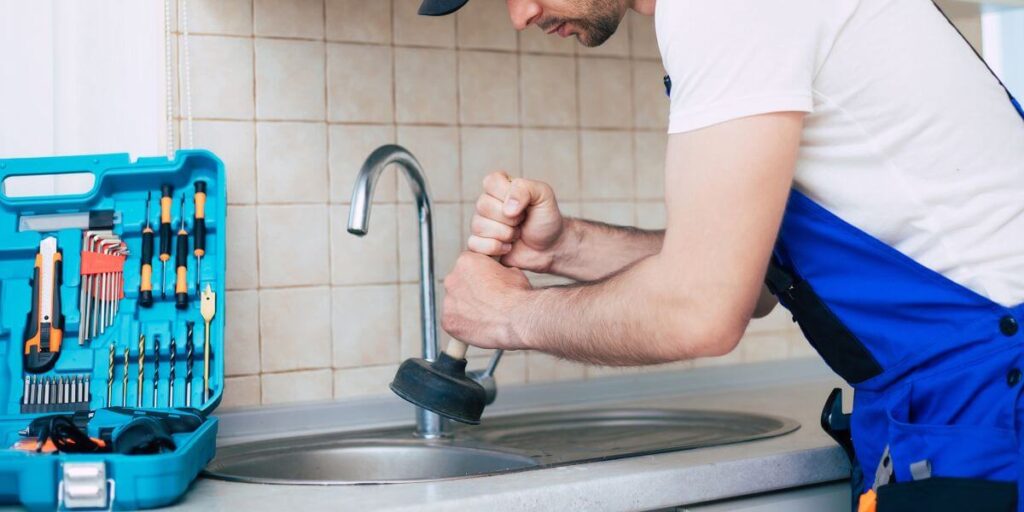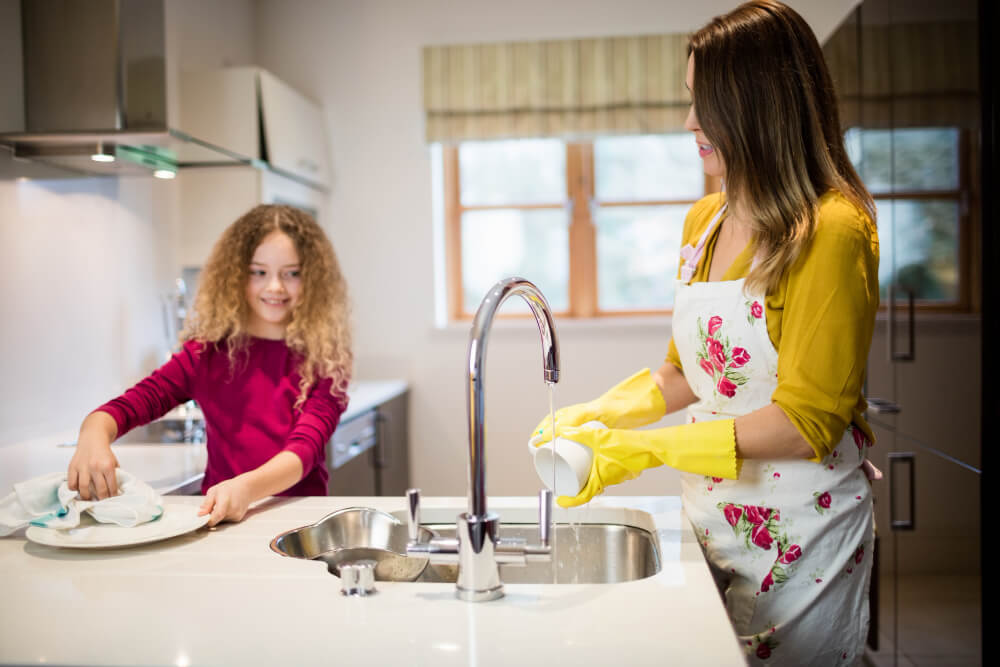The kitchen is one of the most-used rooms in the house. It’s where you make the food for your house and spend most of your time. They say a healthy kitchen means a healthy house. While most of us try our best to keep our kitchens clean on a daily basis, there are a lot of areas of the kitchen that we often neglect, and that is just not possible to thoroughly clean every day, and is one of those important spots of the sink drain.
When washing our dishes on a daily basis, we often don’t care about the bits and pieces of different types of dry or greasy foods, vegetable peels, fruits, and so many other stuff that keep on collecting in our drains. It’s only when it starts to clog, or you start to smell a foul smell in your kitchen that no matter how much refreshment you seem to do, it doesn’t go away that you realize that your sink drain is clogged and needs to be cleaned thoroughly.
Most of the time, even after the recognition of the problem, we have no idea how to properly clean the sink drain naturally. When it’s not cleaned the right way, the problem persists and can even lead to damage to the pipe or drainage system of the sink, and can cause seepage as well.
Hence, in this article, we go through how you can easily clean your sink drain the right way.
Signs Your Drain Needs Cleaning

Some major signs that indicate that your kitchen sink is in desperate need of a proper drain cleaning are:
- Gurgling or bubbling sounds after use indicate that the water is having trouble draining.
- Water drained slower than usual. This means that the deposits might be blocking the waterway and causing a problem.
- You can smell an odour even after properly cleansing your sink and rinsing the drain
- You can see small insects or bugs fly around the sink drain. This definitely means that the leftover food and other items are getting blocked and becoming a perfect habitat for bugs and insects.
Methods: How to Clean Kitchen Sink Drain

1. Boiling Water Flush
One of the most simple and basic ways to clean your kitchen drain is to pour boiling water inside the drain and then close or plug it in for a while. This would help in softening and melting a lot of grease and tin particles and residues stuck in the drain pipe, and then that residue can easily get drained instead of clogging the path. Moreover, it’s the easiest and most time-saving way that can help you immediately clean without enough time on your hands.
2. Baking Soda and Vinegar Method
When you look for ways to clean your kitchen drain naturally, then this one should be on the top. Not only is it the easiest, it’s guaranteed to give a thorough clean as well. First, you have to put a cup of baking soda in the drain, and after that, add a cup of vinegar to it. You don’t need to mix them beforehand at all because the reaction between baking soda and vinegar would lead to the cleaning and softening of all the stuck particles in the drain. You can then add boiling water to finally clean and use it again. It would be working well as new.
3. Plunge or Snake if Needed
You can use your good old manual tools like a plunge or snake to push through the pipe all the way to the end. This would cause all the blockage to open, and there is no way that your drain still stays blocked. You can put boiling water before or after the process to help clear the way.
4. Cleaning the Drain Pipe
Or, if you have time for a very deep clean, you can always open up the pipe from its mouth below your sink and keep a bucket so that the residue can fall in it. You can then take out the pipe and clean it up and, after a thorough cleaning, fix the pipe back nicely so that the sink can be used again.
Keep Your Kitchen Drain Smelling Fresh

If you make sure that you clean the sink drain as often as possible and do not keep neglecting it, then you don’t even have to do such a deep clean each time. You can use the boiling water technique, and it will make sure that your sink has no smell.
Furthermore, making a habit of making sure that not a lot of big waste goes through your sink drain but is instead thrown in the trash before washing the dishes or making sure the vegetable or fruit peels don’t enter it can also ensure that no foul smell is produced.
Want to know when deep cleaning is actually needed? Read our blog on Deep Cleaning vs. Regular Cleaning.
A Little Maintenance Goes a Long Way
By taking care of this small stuff in your kitchen, you can ensure that your kitchen keeps on smelling good, stays hygienic, and, most importantly, you don’t eventually have to spend a lot of money on big repairs.
Small efforts of making sure your drain gets cleaned every 2-3 months are a guarantee of avoiding bigger plumbing and drainage problems. After all, a mom doesn’t want a healthy kitchen for her kids, but if you want a deeper cleaning or you think that the problem remains and you can’t handle it yourself, then you can always book our professionals at Time nTidy to help perfectly clean your sink drainage today!!
Call and book today to get that smell out of your kitchen!!
FAQS
It’s best to clean your kitchen sink drain every 2–3 months to prevent buildup, clogs, and odors. Heavier usage may require monthly cleaning.
Bad odors usually come from trapped food, grease, or bacterial buildup inside the drain. Regular cleaning helps eliminate these issues.
Yes, boiling water is a quick and natural way to loosen grease and flush minor blockages. Just avoid it on PVC pipes to prevent damage.
Absolutely. The chemical reaction between baking soda and vinegar breaks down residue and deodorizes the drain naturally.
If home methods don’t work or clogs keep returning, it’s time to call a professional for a deep clean and inspection.

